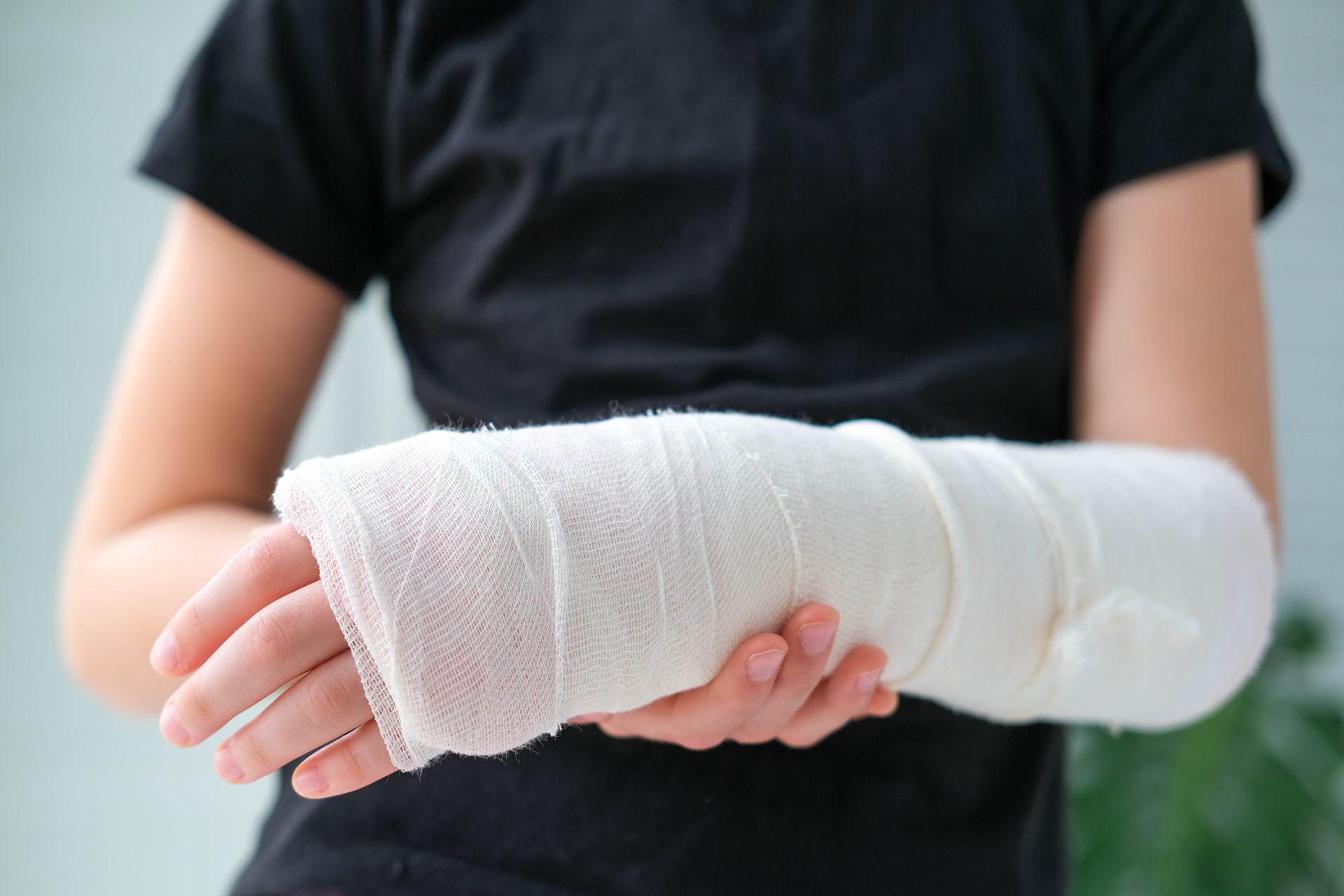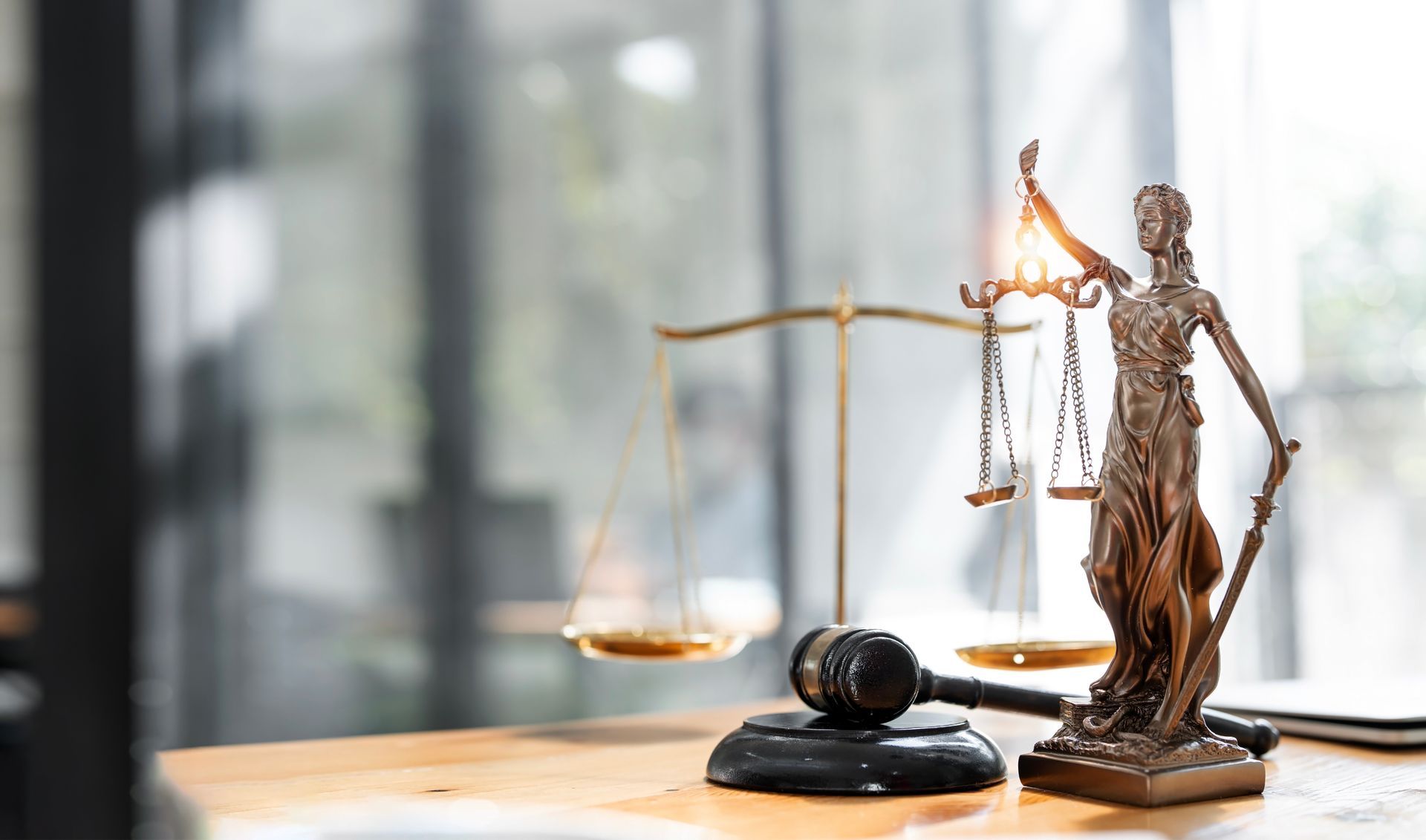Don't Call Christina Later, Call Christina Now
Follow us
Can I File a Personal Injury Lawsuit for an Accident That Wasn’t My Fault?
Understanding Your Rights:
Filing a Personal Injury Lawsuit After an Accident You Didn’t Cause
Accidents happen all the time, and many of us find ourselves in situations where we’ve been involved in a collision or injury that wasn’t our fault. Whether it's a car accident, slip and fall, or a workplace injury, it’s natural to wonder whether you have the legal right to file a personal injury lawsuit. The good news is that if the accident wasn’t your fault, you may be entitled to compensation for your injuries, medical expenses, and other damages.
In this blog, we’ll break down how personal injury lawsuits work, the conditions under which you can file one, and the steps you should take if you’ve been involved in an accident that wasn’t your fault.
What Is a Personal Injury Lawsuit?
A personal injury lawsuit is a legal claim that allows someone who has been harmed or injured by another party’s negligence to seek compensation. Negligence means that another person or entity failed to exercise reasonable care, leading to your injury or harm.
Personal injury claims can cover a wide range of incidents, such as:
- Car and Motorcycle Accidents
- Workplace and Construction Injuries
- Slip and Fall / Premises Liability
- Medical Malpractice
- Dog Bites and Animal Attacks
- Product Liability (Defective Products)
- Assault and Battery
- Wrongful Death
- Nursing Home Abuse/ neglect
- Rideshare and Trucking Accidents
- Toxic Exposure and Environmental Injuries
- Car and Motorcycle Accidents
- Workplace and Construction Injuries
- Slip and Fall / Premises Liability
- Medical Malpractice
- Dog Bites and Animal Attacks
- Product Liability (Defective Products)
- Assault and Battery
- Wrongful Death
- Nursing Home Abuse/ neglect
- Rideshare and Trucking Accidents
- Toxic Exposure and Environmental Injuries
The key point is that the accident was not your fault, and someone else’s actions or lack of action directly caused your injury.
When Can You File a Personal Injury Lawsuit?
If you’ve been in an accident that wasn’t your fault, you may have the right to file a personal injury lawsuit, but you’ll need to prove certain things to succeed in your claim. Here are the key elements of a personal injury lawsuit:

1. Negligence or
Fault of Another Party
To file a personal injury lawsuit, you must prove that the other party was at fault or negligent in some way. This could include:
- Driving recklessly or violating traffic laws (in the case of car accidents).
- Failing to maintain safe premises (in the case of slip and fall accidents).
- Negligence in maintaining machinery (in workplace accidents).
- Medical negligence (in medical malpractice cases).
It’s not enough that you were injured; you must prove that someone else’s actions caused the accident.
1. Negligence or Fault of Another Party
To file a personal injury lawsuit, you must prove that the other party was at fault or negligent in some way. This could include:
- Driving recklessly or violating traffic laws (in the case of car accidents).
- Failing to maintain safe premises (in the case of slip and fall accidents).
- Negligence in maintaining machinery (in workplace accidents).
- Medical negligence (in medical malpractice cases).
It’s not enough that you were injured; you must prove that someone else’s actions caused the accident.


2. Injury and Damages
In addition to proving the other party’s fault, you must show that you suffered an injury or harm due to the accident. This could include physical injuries, emotional distress, or financial loss. The more evidence you can gather to show that the accident caused your damages, the stronger your case will be.

3. Statute of Limitations
Personal injury lawsuits are time-sensitive. Each state has a "statute of limitations" that sets a time limit for filing a lawsuit after an accident. In most states, the time limit is 2-3 years, but this can vary depending on the type of accident and the state laws. Make sure to consult with a lawyer to ensure you file your claim within the allowed time frame.
3. Statute of Limitations
Personal injury lawsuits are time-sensitive. Each state has a "statute of limitations" that sets a time limit for filing a lawsuit after an accident. In most states, the time limit is 2-3 years, but this can vary depending on the type of accident and the state laws. Make sure to consult with a lawyer to ensure you file your claim within the allowed time frame.

Steps to Take After an Accident That Wasn’t Your Fault
If you’ve been injured in an accident that wasn’t your fault, there are important steps you should take to protect your right to file a lawsuit and receive compensation:

1. Seek Medical Attention
The first thing you should do after an accident is seek medical treatment, even if you don’t think you’re seriously injured. Some injuries may not show symptoms immediately, and seeing a doctor creates an official record of your injuries, which will be important for your case.
1. Seek Medical Attention
The first thing you should do after an accident is seek medical treatment, even if you don’t think you’re seriously injured. Some injuries may not show symptoms immediately, and seeing a doctor creates an official record of your injuries, which will be important for your case.


2. Gather Evidence
Evidence is crucial when filing a personal injury lawsuit. Collect as much information as you can from the scene of the accident, including:
- Photographs of the accident scene, injuries, and any property damage.
- Contact information for witnesses who can support your version of events.
- Accident reports from the police or workplace safety officials.
- Medical records showing your diagnosis, treatment, and expenses.
This evidence will help prove that the other party was at fault and that you were injured as a result.

3. Notify Your Insurance Company
Report the accident to your insurance provider, especially if it was a car accident or involved damage to property. They may help with initial expenses and may also provide important information for your lawsuit.
3. Notify Your Insurance Company
Report the accident to your insurance provider, especially if it was a car accident or involved damage to property. They may help with initial expenses and may also provide important information for your lawsuit.


4. Consult with an Attorney
Personal injury lawsuits can be complex, and the process of proving negligence can be challenging. Consulting with a qualified attorney is crucial. They can help you navigate the legal system, gather evidence, and determine the best course of action for your case. Most personal injury lawyers offer free consultations and only charge if you win the case.
What Types of Damages Can You Recover?
If you win your personal injury lawsuit, you may be entitled to compensation for various damages, including:
- Medical expenses: Current and future medical treatment related to the injury.
- Lost wages: Compensation for income lost due to the injury.
- Pain and suffering: Compensation for physical and emotional distress.
- Property damage: If your property, such as your vehicle, was damaged in the accident.
The amount you receive will depend on the severity of your injuries, the impact on your life, and the fault of the other party.
If you’ve been in an accident that wasn’t your fault, you may have the right to file a personal injury lawsuit. The process involves proving that the other party was negligent, that you suffered damages, and that you filed your claim within the statute of limitations. By gathering evidence, seeking medical attention, and working with an experienced attorney, you can improve your chances of receiving compensation for your injuries.
If you’ve been involved in an accident that wasn’t your fault and need assistance with a personal injury lawsuit, contact us today for a consultation. Our experienced attorneys can help you navigate the process and fight for the compensation you deserve.
Quick & Reliable
We are available 24/7 to Guide You to Better Health.
CALL CHRISTINA NOW is here to help 24 hours a day, 7 days a week, offering free and compassionate support. When you call us, we'll listen to your concerns, understand the specifics of your accident, help you find medical care for your injuries, and connect you with a professional who can advise you on the legal aspects of your situation.
CALL CHRISTINA NOW specializes in assisting with Lawyer and Medical Accident matters. If you've been in a car, motorcycle, or truck accident—or any other kind of accident—contact us today for trustworthy support.
DISCLAIMER:
CALL CHISTINA NOW isn't a law firm and can't provide legal advice, but we can refer you to the right attorney who can.
All Rights Reserved | Call Christina Now
Copyright © Call Christina Now Offers All Rights Reserved 2025
View Our Privacy Policy | Terms & Conditions | Disclaimer
